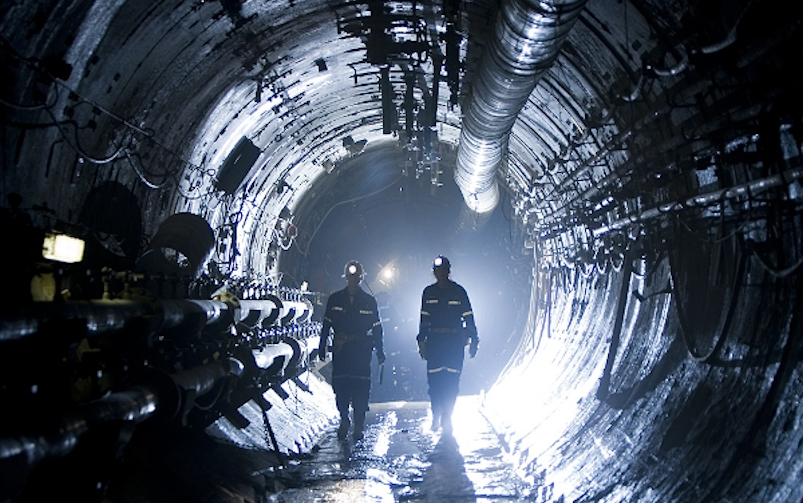Teck Resources announced on Feb. 23 that it was withdrawing from the regulatory review process for its $20.6 billion Frontier oil sands project. The news comes days before the federal government was expected to make a final decision on whether it would approve the project.
Teck CEO and President Don Lindsay released a letter, addressed to the federal Minister of the Environment and Climate Change, Jonathan Wilkinson, explaining the decision. “We are disappointed to have arrived at this point,” Lindsay said in the statement. “Teck put forward a socially and environmentally responsible project that was industry leading and had the potential to create significant economic benefits for Canadians.”
The northern Alberta project was projected to produce 260,000 barrels of oil per day, create 9,500 construction and operating jobs and result in a total of $70 billion in government revenue. Teck will now take a $1.13 billion writedown on the project as a result of its withdrawal.
The Frontier mine project had been under consideration for the past decade. Teck first submitted applications for Frontier to the Alberta Energy Regulator (AER) in November 2011. In May 2016, the AER and Canadian Environmental Assessment Agency (CEAA) appointed a joint review panel to evaluate the Teck’s submitted materials. The AER and CEAA submitted their decision in July 2019, after three years of reviews and consultations, and recommended that the project be approved.
The last hurdle for Teck seemed to be the federal government’s final approval for the project to proceed. The project was the subject of heavy debate by those outside politics and reportedly within the cabinet itself. Now, the federal government will no longer need to make that decision.
Even if Ottawa had given Teck the go-ahead, there is no guarantee Frontier would have ever been built, as the economic viability of the project had been called into question. Oil prices have dropped significantly from 2008 – the year Teck first began the regulatory process for the would-be mine – and they have not yet recovered to a point where the mine would be economically feasible.
In an April 2016 project review, Teck explained that for the Frontier project to be successful, it would require a long-term price of US$95 per barrel. At the time the company cited a forecast that expected oil prices to be US$80 to US$90 per barrel by 2020. Currently, oil prices are US$51.42 per barrel.
Related : Sumitomo purchases 30 per cent stake in Teck’s Quebrada Blanca for US$1.2 billion
While proponents of the project touted the economic benefits it could bring to Alberta and Canada, critics focused on how it would affect the environment. If built, the mine would have released over four million tonnes of greenhouse gases per year over a 40-year mine life. In his statement, Lindsay said that increased scrutiny on climate change and emissions made the Frontier project unviable.
“Global capital markets are changing rapidly and investors and customers are increasingly looking for jurisdictions to have a framework in place that reconciles resource development and climate change, in order to produce the cleanest possible products,” Lindsay said. “This does not yet exist here today and, unfortunately, the growing debate around this issue has placed Frontier and our company squarely at the nexus of much broader issues that need to be resolved. In that context, it is now evident that there is no constructive path forward for the project.”
The decision came a few hours after Alberta’s provincial government finalized agreements about environmental concerns with the Athabasca Chipewyan and the Mikisew Cree First Nations. The agreement meant that all 14 First Nation and Métis groups in the project area had granted it support. Teck called Indigenous support for the Frontier project “unprecedented, while Wilkinson and Natural Resources Minister Seamus O’Regan called its consultation work “leading class” and a “positive example for future proponents.”
The two ministers released a joint statement following news of Teck’s withdrawal from the project. “As Teck has rightly pointed out, and as many in the industry know, global investors and consumers are increasingly looking for the cleanest products available and sustainable resource development,” read the statement. “We agree with Teck and leading industry groups that all orders of government need a real plan for climate action now and to reach a net zero economy by 2050.”
Alberta Premier Jason Kenney also issued a statement saying that Teck’s decision was “not surprising” given recent events, and criticized the federal government for stalling while making a decision about the project. “Weeks of federal indecision on the regulatory approval process and inaction in the face of illegal blockades have created more uncertainty for investors looking at Canada,” Kenney wrote. “Teck’s predicament shows that even when a company spends more than $1 billion over a decade to satisfy every regulatory requirement, a regulatory process that values politics over evidence and the erosion of the rule of law will be fatal to investor confidence.”
Teck’s decision comes a few days after it reported its annual 2019 and fourth quarter results. The company reported its EBITDA at $4.3 billion, as compared to $5.4 billion in 2018, and non-cash, after-tax impairments charges of $999 million in the fourth quarter.


